Congratulations to Lesley Milne, senior lecturer in midwifery, on the acceptance of her latest paper on maternity care in Nepal. This new paper ‘Gender inequali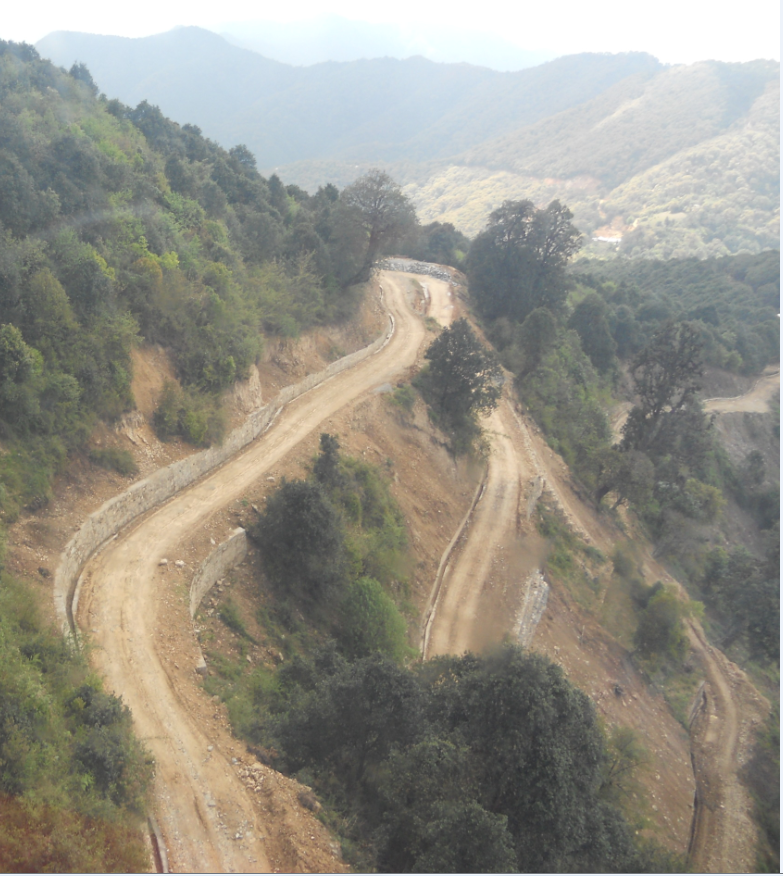 ties and childbearing: A qualitative study of two maternity units in Nepal’ will appear soon in the Open Access publication: Journal of Asian Midwives [1]. This is the second publication from a qualitative research study undertaken in two birthing facilities in Kathmandu Valley to examine barriers to women accessing these services from the perspective of hospital staff [2].
ties and childbearing: A qualitative study of two maternity units in Nepal’ will appear soon in the Open Access publication: Journal of Asian Midwives [1]. This is the second publication from a qualitative research study undertaken in two birthing facilities in Kathmandu Valley to examine barriers to women accessing these services from the perspective of hospital staff [2].
The study received financial support from Wellbeing of Women and the RCM (Royal College of Midwives) as Lesley won their first International Fellowship Award. The study was a collaboration led by Lesley in the Centre for Midwifery, Maternal & Perinatal Health (CMMPH) with two of FHSS’s Visiting Faculty, namely Prof. Padam Simkhada who is based at Liverpool John Moores University and Jillian Ireland, Professional Midwifery Advocate based at Poole NHS Hospitals Foundation Trust.
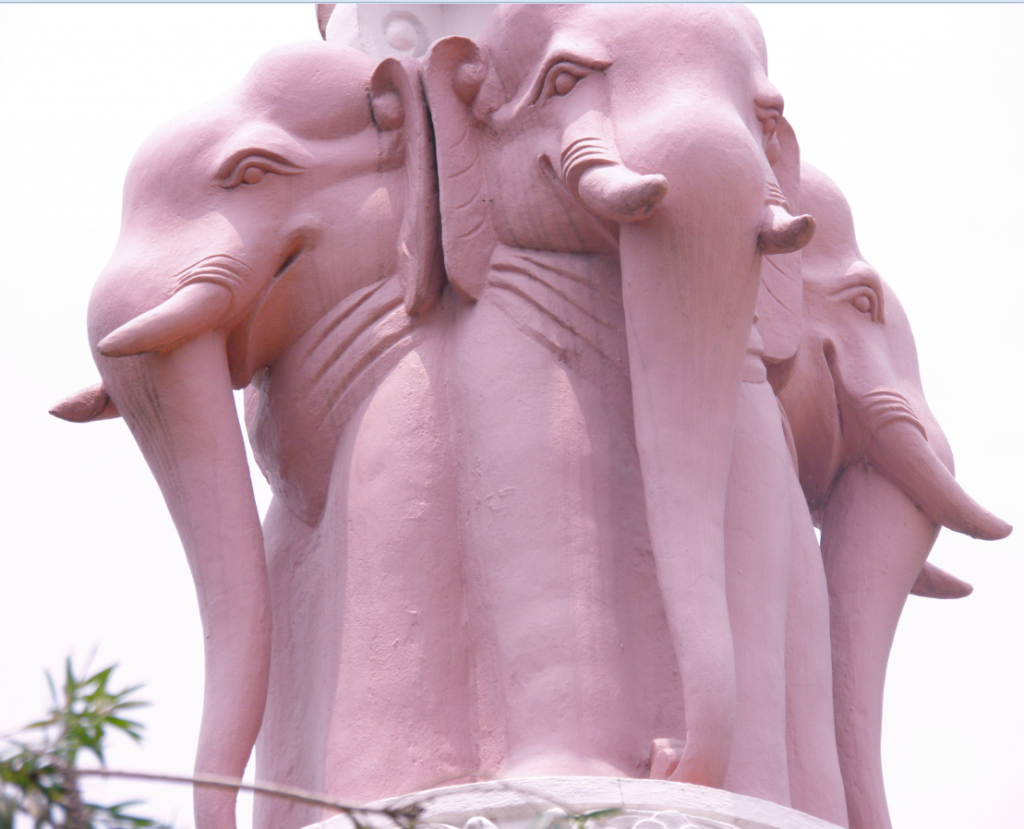
Well done!
Profs. Vanora Hundley & Edwin van Teijlingen
References
- Milne, L., Ireland, J., van Teijlingen, E., Hundley, V., Simkhada, P.P. (2018) Gender inequalities and childbearing: A qualitative study of two maternity units in Nepal, Journal of Asian Midwives (accepted).
- Milne, L., van Teijlingen, E., Hundley, V., Simkhada, P., Ireland, J. (2015) Staff perspectives of barriers to women accessing birthing services in Nepal: A qualitative study BMC Pregnancy & Childbirth 15:142 www.biomedcentral.com/1471-2393/15/142 .
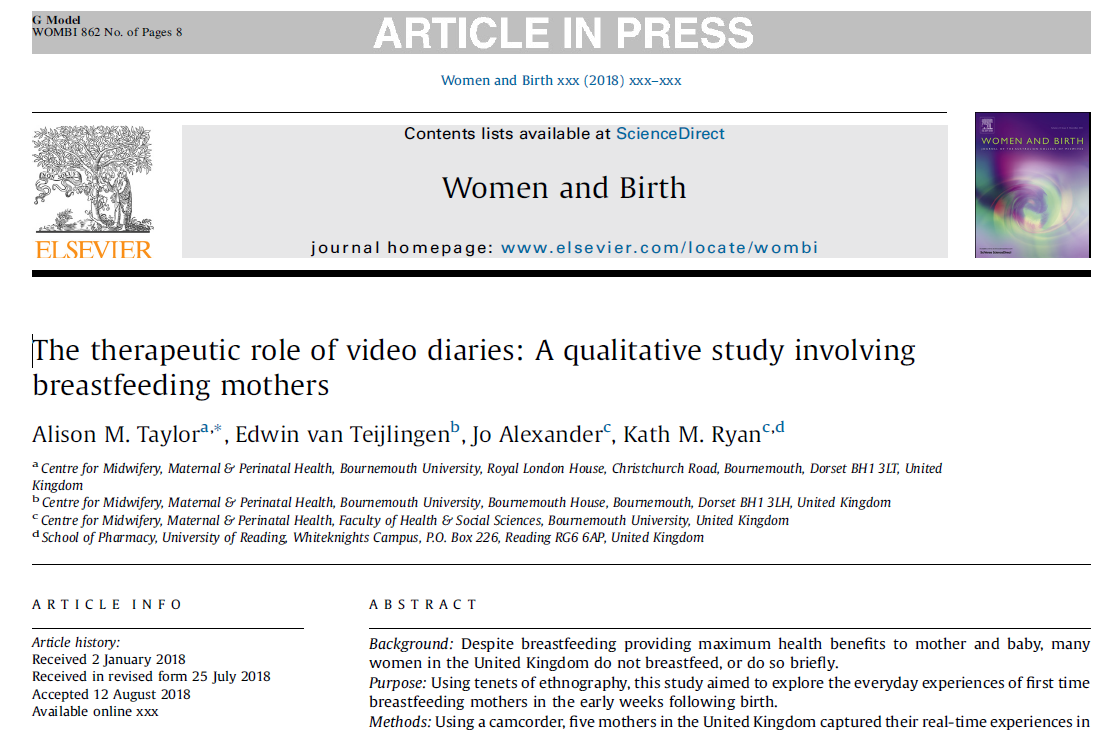
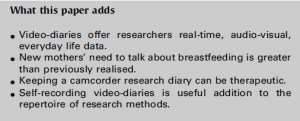
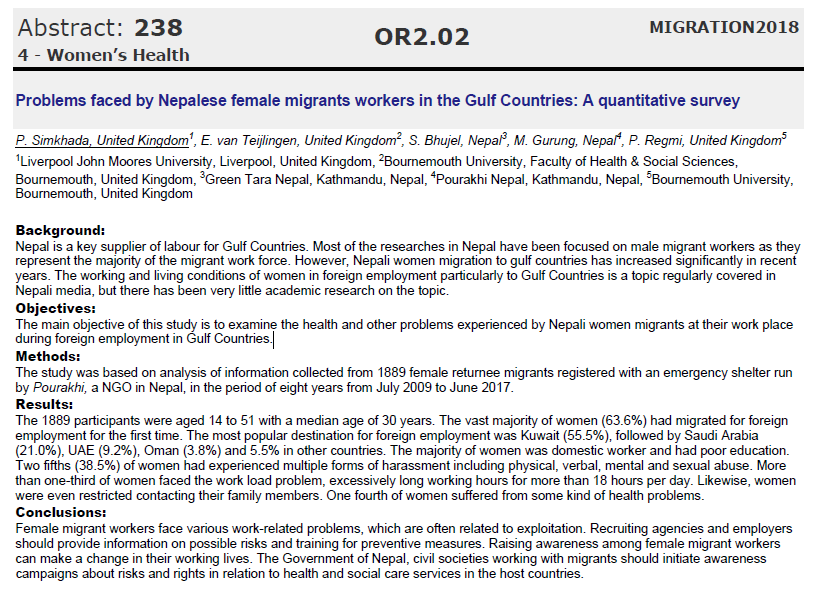
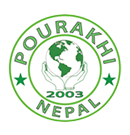
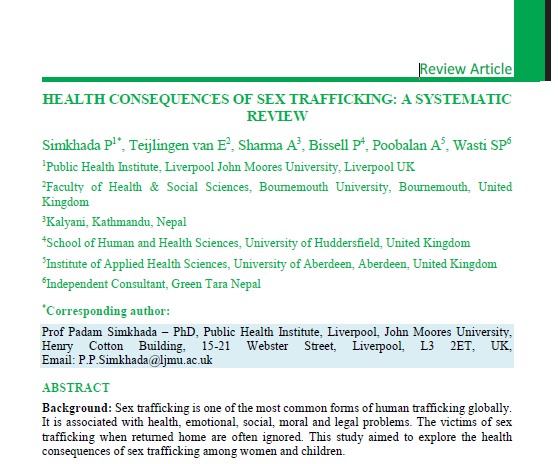
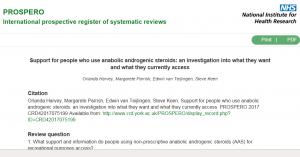
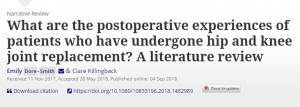
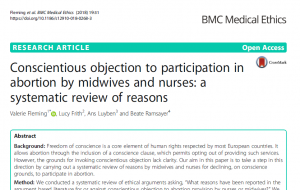
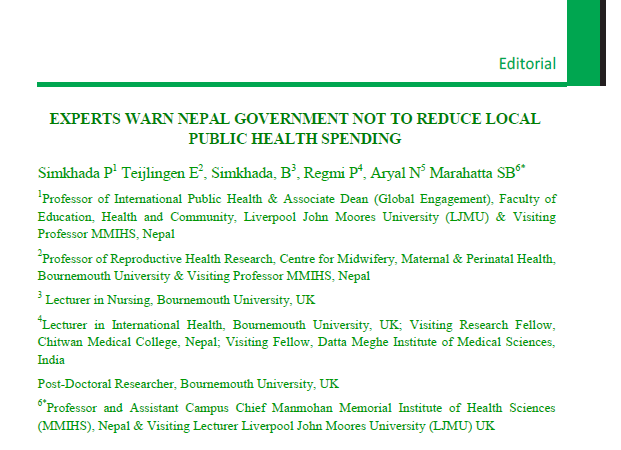

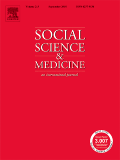
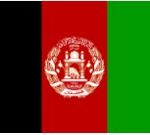
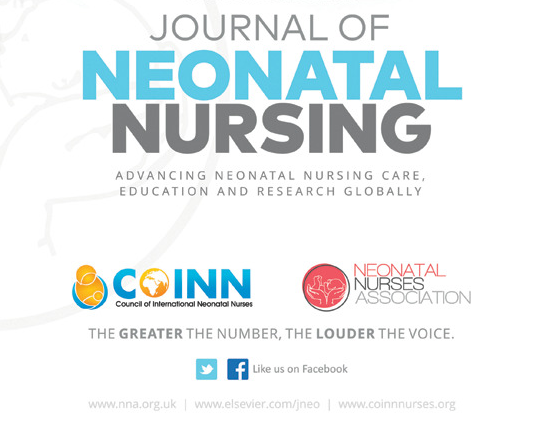
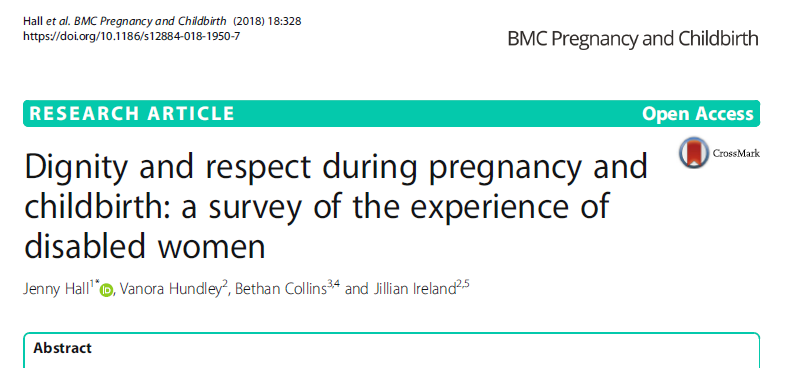

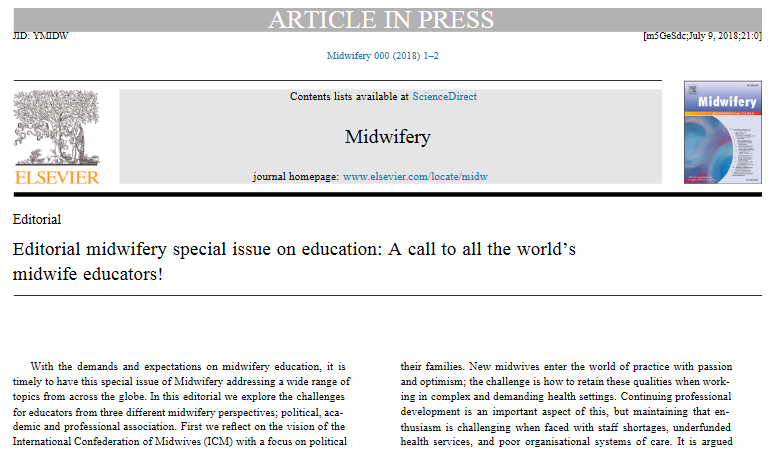

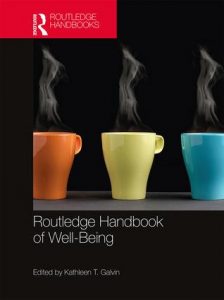 Congratulations to current and past academics in the Faculty of Health & Social Sciences and the Faculty of Science & Technology who contributed to the newly published
Congratulations to current and past academics in the Faculty of Health & Social Sciences and the Faculty of Science & Technology who contributed to the newly published 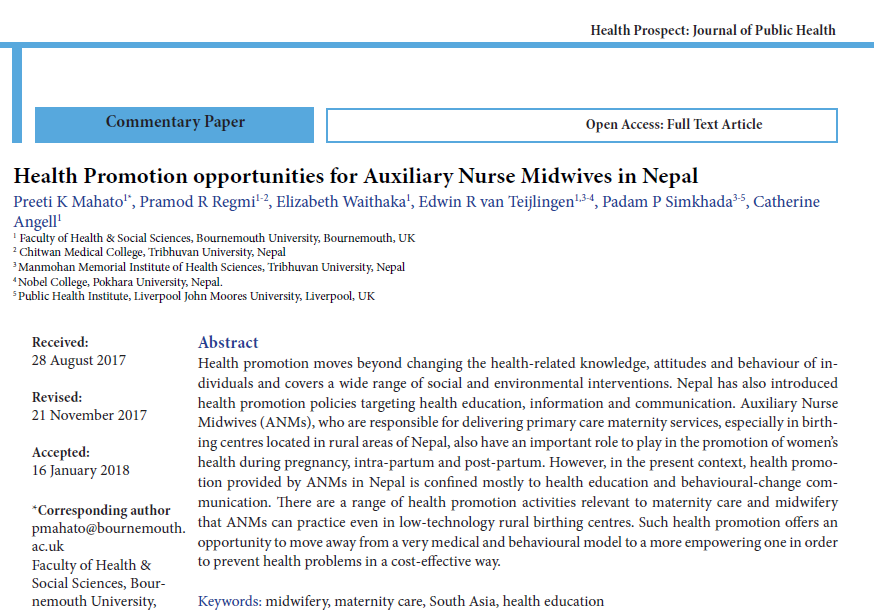
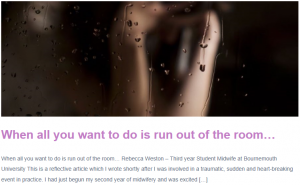
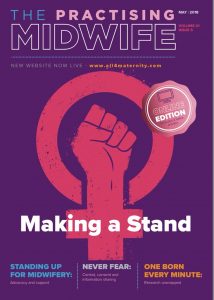
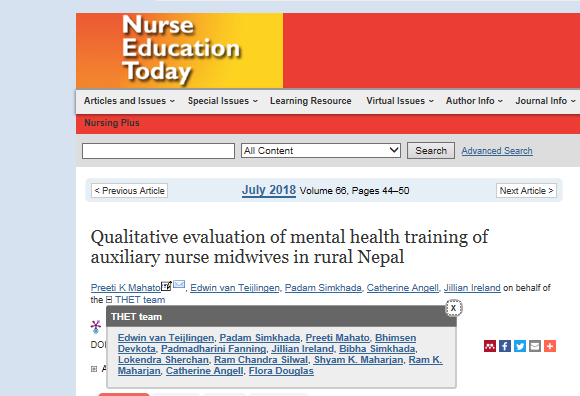
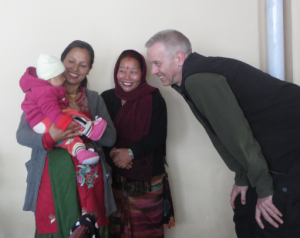
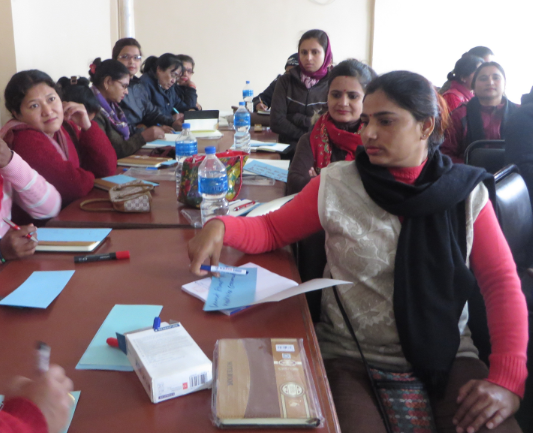











 Expand Your Impact: Collaboration and Networking Workshops for Researchers
Expand Your Impact: Collaboration and Networking Workshops for Researchers Visiting Prof. Sujan Marahatta presenting at BU
Visiting Prof. Sujan Marahatta presenting at BU 3C Event: Research Culture, Community & Can you Guess Who? Thursday 26 March 1-2pm
3C Event: Research Culture, Community & Can you Guess Who? Thursday 26 March 1-2pm UKCGE Recognised Research Supervision Programme: Deadline Approaching
UKCGE Recognised Research Supervision Programme: Deadline Approaching ECR Funding Open Call: Research Culture & Community Grant – Apply now
ECR Funding Open Call: Research Culture & Community Grant – Apply now ECR Funding Open Call: Research Culture & Community Grant – Application Deadline Friday 12 December
ECR Funding Open Call: Research Culture & Community Grant – Application Deadline Friday 12 December MSCA Postdoctoral Fellowships 2025 Call
MSCA Postdoctoral Fellowships 2025 Call ERC Advanced Grant 2025 Webinar
ERC Advanced Grant 2025 Webinar Update on UKRO services
Update on UKRO services European research project exploring use of ‘virtual twins’ to better manage metabolic associated fatty liver disease
European research project exploring use of ‘virtual twins’ to better manage metabolic associated fatty liver disease